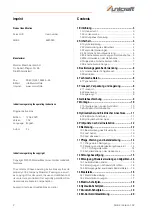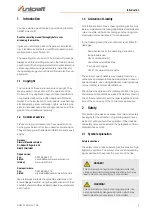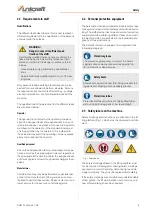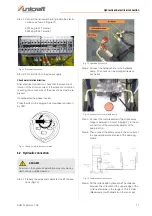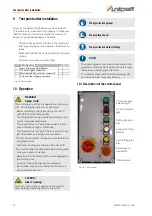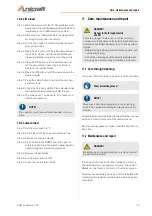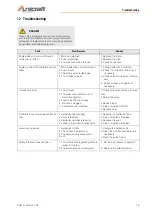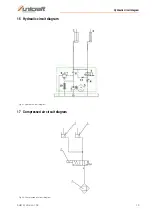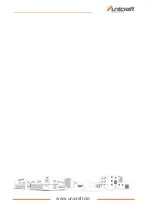
16
SHB 3 | Version 1.02
Disposal, recycling of used devices
13 Disposal, recycling of used devices
Please take care in your own interest and in the interest of
the environment that all component parts of the ma-chine
are only disposed of in the intended and permitted way.
13.1 Decommissioning
Immediately decommission used machines in order to
avoid later misuse and endangering of the envi-ronment
or of persons.
Step 1: Eliminate all environmentally hazardous opera-
ting materials from the used device.
Step 2: If required, disassemble the machine into easy to
handle and usable components and parts.
Step 3: Dispose of machine components and operating-
materials by the disposal channels provided.
13.2 Disposal of lubricants/oils
Remove the escaping, used or excess oil/grease at the
oil filler neck/lubrication points supplied with lubricant.
The lubricant manufacturer provides the disposal in-
structions for the lubricants used. If necessary, ask for
the product-specific data sheets.
13.3 Disposal via municipal collection points
Disposal of used electrical and electronic equipment
(Applicable in the countries of the European Union and
other European countries with a separate collection sys-
tem for these appliances).
The symbol on the product or its packaging indi-
cates that this product should not be treated as normal
household waste, but must be returned to a collection
point for the recycling of electrical and electronic equip-
ment. By helping to properly dispose of this product, you
are protecting the environment and the health of others.
Environment and health are endangered by improper
disposal. Material recycling helps to reduce the con-
sumption of raw materials. For more information about
recycling this product, contact your local community, mu-
nicipal waste management, or the shop where you pur-
chased the product.
14 Spare parts
14.1 Ordering spare parts
The spare parts may be purchased with the authorised de-
aler or directly with the manufacturer. Please find the cor-
responding contact data in Chapter 1.2 Customer service.
Indicate the following basic information for requests or
orders of spare parts:
- Type of device
- Item No.
- Position No.
- Year of construction:
- Quantity
- Required mode of dispatch (mail, freight, sea, air,
express)
- Address of dispatch
Orders for spare parts without the above information
cannot be considered. In the absence of information on
the mode of dispatch, dispatch will be at the discretion of
the supplier.
Information on the device type, article number and year
of manufacture can be found on the type plate attached
to the scissor lift.
Example
The Compressed air cylinder for the Scissor lift SHB 3
must be ordered. The Compressed air cylinder has the
number 22 in the spare parts drawing 1.
By ordering spare parts, send a copy of the spare parts
drawing (1) with the marked part (Compressed air cylin-
der) and marked positon number (22) to the dealer or
spare parts department and provide the following infor-
mation:
- Type of device:
Scissor lift SHB 3
- Item number:
6240030
- Drawing number:
1
- Position number:
22
DANGER!
Risk of injury due to the use of
wrong spare parts!
Dangers may result for the user and damages as well
as malfunctions may be caused by using wrong or
damaged spare parts.
- Only use original spare parts of the manufacturer or
spare parts admitted by the manufacturer.
- Always contact the manufacturer in case of uncer-
tainties.
Tips and recommendations
The manufacturer's warranty will become null and
void if non-permissible spare parts are being used.

